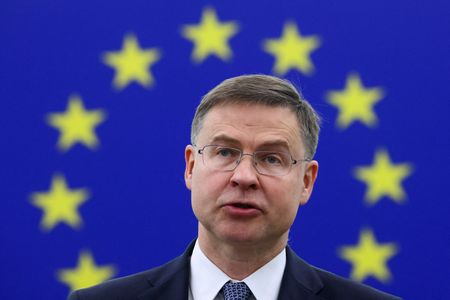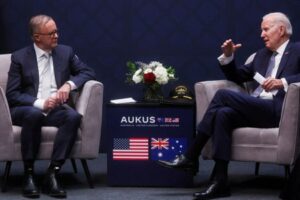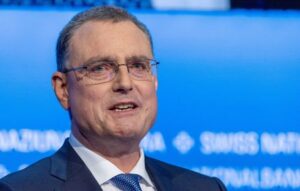BRUSSELS (Reuters) – Next week’s summit of leaders from the European Union, Latin America and the Caribbean is unlikely to unlock a proposed EU-Mercosur free trade agreement, officials from both sides said on Friday.
More than 50 leaders are expected to attend the EU-CELAC (Community of Latin American and Caribbean States) summit in Brussels on Monday and Tuesday.
EU trade chief Valdis Dombrovskis has previously said the gathering could add an extra impulse to negotiations between the EU and the Mercosur bloc of Argentina, Brazil, Paraguay and Uruguay, who struck a provisional trade agreement in 2019.
It has been put on hold because of EU concerns over Amazon deforestation.
An EU official said on Friday that the bloc did not expect any breakthroughs at the summit, which is likely to feature many bilateral or smaller group meetings.
Argentine Undersecretary for Latin American and Caribbean affairs Gustavo Martinez Pandiani said he did not expect concrete results on the trade accord.
“CELAC-EU is not the appropriate place to negotiate trade. It’s a political forum,” he told a small group of reporters. “We are not talking about customs and trade figures here.”
He added Mercosur did not just want any deal with Europe.
“We want a fair and balanced agreement in which every party has something to win,” he said.
The European Commission has proposed an addendum on deforestation and sustainability and is awaiting a Mercosur response.
The EU believes Luiz Inacio Lula da Silva’s defeat of Jair Bolsonaro in last October’s Brazilian presidential election has created a window of opportunity. Lula has promised to overhaul Brazil’s climate policy.
However, Lula has said Mercosur wants a “win-win” trade deal and criticised the addendum for introducing potential penalties over climate policy.
An EU official said this was not the case.
“We have not, we are not proposing sanctions… We’re trying to really raise the tide and lift all the boats with it, through an approach that is sound and sustainable,” the official said.
(Reporting by Philip Blenkinsop and Andrew Gray)





